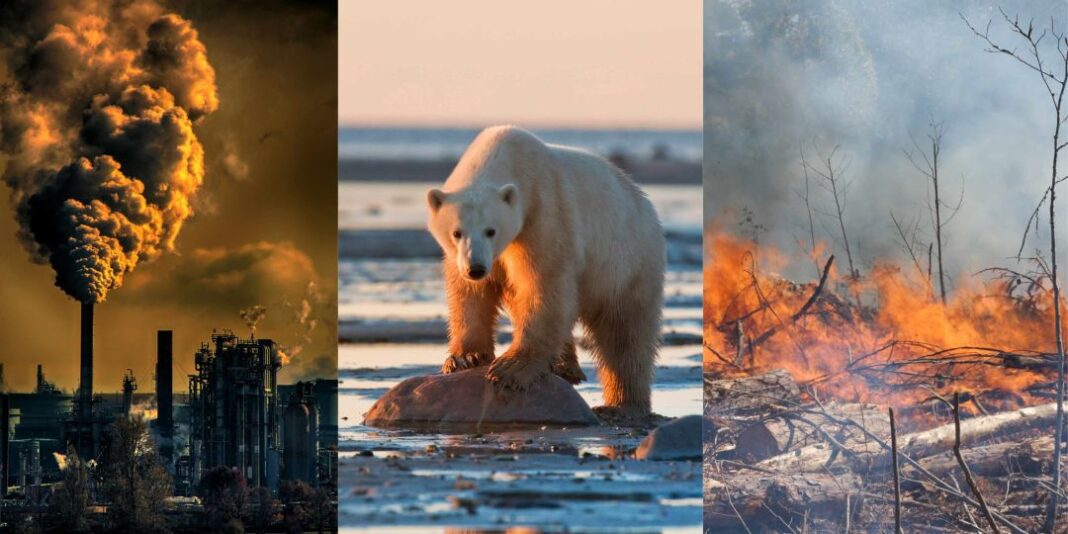By: Huria Liaqat
Climate change is a term that every single person is familiar with nowadays. However, the misconception of the people to relate any unusual calamity or mishap in the natural environment to climate change is of greatest concern. It is a fact that the climate has been changing at an exceptionally fast pace in the past decade. Moreover, it is more than simply the world getting hotter that has become an impending challenge across the globe. The consequences of which are being reflected through a series of conferences executed at both national and international forums, to raise awareness against the exacerbating catastrophic disasters reckoning havoc across the globe as an alarming nonetheless an ultimate humanitarian crisis.
Pakistan has been withstanding the worst climate change-related events since the recent past, despite being less than 1% contributor to global carbon emissions. In the year 2017, the country ranked seventh amongst the most vulnerable countries as per the Global Climate Risk Index. However, in the recent past, a consensus regarding climate change has emerged among the world’s scientists and policymakers representing the vulnerability of our environment to these changes and the consequences of an increase in such events that are likely to fluctuate across the globe leading to a prolonged crisis such as droughts, sea-level rise, availability of fresh water, flash floods, forest fires, temperature extremes, disease outbreak and degradation of the environment.
Climate change impacts are usually linked to apathy, caring more for financial concerns rather than climate ones. No wonder, there are ambiguities in the effective implementation of climate policies that need to be filled. Additionally, we need an immediate focus on balancing both climate mitigation and adaptation strategies in parallel. The blame for this destruction cannot solely be placed on climate change, as there in lies a significant role of ill-governance, lack of planning and corruption. The government needs to understand that a focus on risk reduction and resilient infrastructure development is crucial since these disasters will get so repetitive that we will not have the ability to respond as effectively. Wherein lies major gaps between policy-making institutions and common people which is a prevalent cause of flawed implementation of climate-related policies.
Opting for climate-resilient technologies to enhance productivity, the focus should be on green agricultural technologies such as drip irrigation system, rainwater harvesting, recycling of wastewater through bioremediation, and conservation of the ecosystem through legal framework. A major drawback is the lack of awareness of our strengths and expertise which accounts for improper culpability and communication at all levels. In this quest, working on sector specific climate hazards during different seasons by raising awareness among the locals, and preparedness through an early warning system are the suggestions that can lead to a viable solution and can help get the state out of a crisis. Moreover, bridging the gap between different state institutes by providing a nexus of collaboration between Research and Development (R&D) by the government, NGOs, and the public to overcome this climate crisis is dire need of hour. This demands a shift in our strategies to adaptation rather than mitigation and exploring the justified reasons and our research shortcomings to prevent them from happening in the future.
Pakistan, no doubt, is very competent in drafting marvelous policy documents, but the implementation of those words is still not there mainly due to a lack of proper accountability and communication at all levels. Therefore, the development of national ability pool at the national level should be practiced in this regard, also, to get accurate statistics of a state’s emissions inventories should be installed throughout the state as there is a lack of transparency in scientific baseline and integrated climate information system due to which the country lags in pro-active approach.
Conclusively, the missing link for climate in the policy sector, backlashing sustainable development is the main driver of climate crisis in Pakistan. Therefore, a dire need for an effective climate change policy is no longer a matter of choice but a compulsion, the success of which is highly dependent on the meaningful contribution from all stakeholders in a responsible way. Let us stop sleepwalking towards the destruction of our planet at the hands of Climate Change because what happened in Pakistan will not stay in Pakistan. Therefore, the only way to ensure sustenance on Earth is by improving the quality of life through formulating a practical framework owing to which man can adapt to the changing climate because to revert things altogether is difficult to achieve haphazardly.
The writer is a student of bachelor’s in environmental sciences, Quaid-i-Azam University Islamabad. She is also a research intern at Pakistan Environmental Protection Agency, Islamabad. She can be reached at [email protected]








